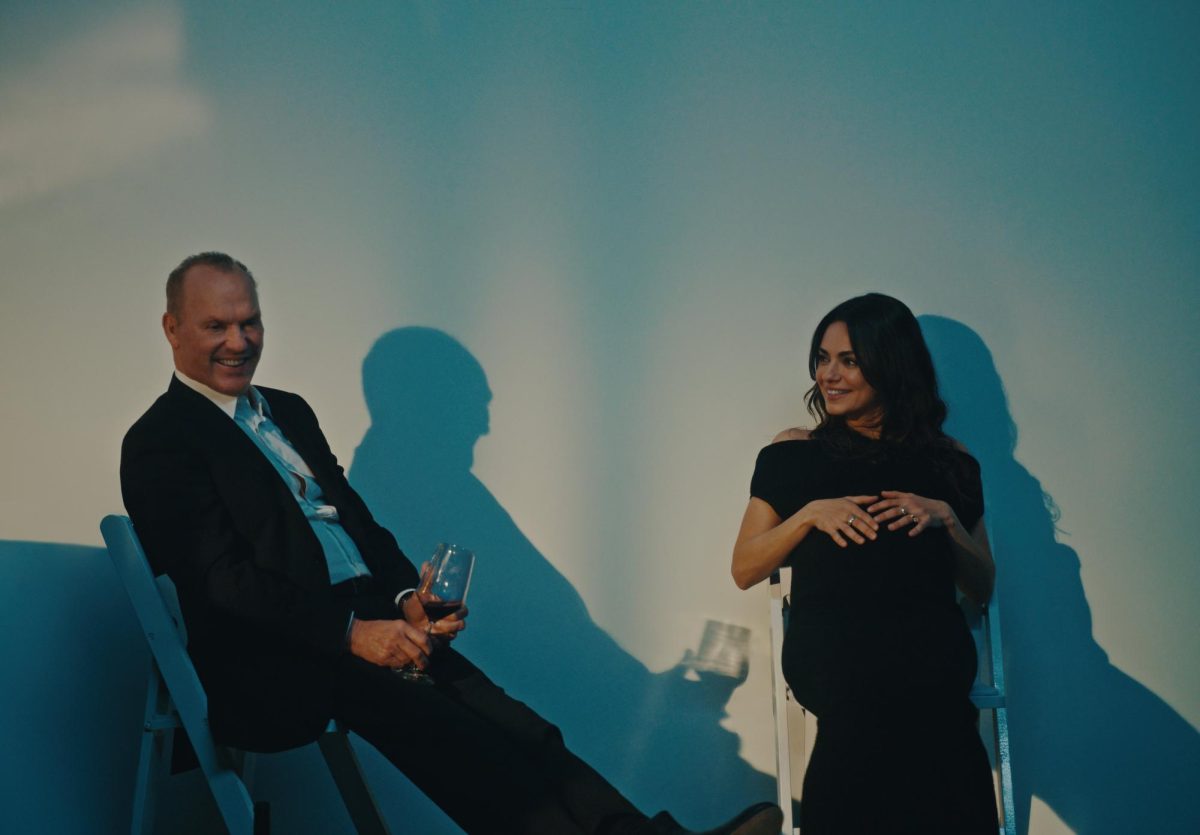As a Viking, she rotates along the back-line of the girls varsity soccer team, wearing the number eight on her lightweight blue and white uniform. But on the Iranian Under-16 Girls National soccer team, sophomore Melika Mohammadi dribbles down the field in a heavy uniform covering her entire body, striving to overcome the barriers that many female athletes encounter abroad.

After arriving in Bethesda in 2013, Mohammadi began playing at Pyle and for the Bethesda club team. She made the Whitman Varsity team as a freshman, strengthening her skills as a player and her bond with her teammates. Sophomore Chelsea Cahill is one of the many players who has had the opportunity to play with Mohammadi on both school and club teams.
“She’s a really inspiring teammate,” Cahill said. “If you make a mistake, she tells you to keep working and if you do well she congratulates you.”
Mohammadi juggles the ordinary life of a high school athlete and Whitman’s rigorous academics, but, unlike other athletes at Whitman, she encounters the added challenges of representing Iran on the field.

Before she moved to Bethesda, Mohammadi attended tryouts for the U-14 National team in her hometown, Shiraz, Iran, and was selected for the team.
Mohammadi has since continued her Iranian soccer career, despite living in the United States, and is now anticipating her placement on the U-19 team this summer.
The Iranian team is a year-long commitment, which means Mohammadi is constantly traveling across the world to attend games. Her most recent tournament was in Italy, where Iran played the U.S. (among other teams) in the first game ever between a U.S. women’s team and a Middle Eastern team.
“In Italy we played the U.S., England and Italy,” Mohammadi said. “We lost all three, but that was expected. It was really fun though. It was a great experience.”
Having played several years for Iran, Mohammadi said she sees clear differences between her experiences playing in Iran and in Bethesda.

Mohammadi described the difference in uniforms as one of the more significant contrasts. The red and white Iranian uniform, mandatorily worn during both games and practices, includes hijabs (a traditional headscarf), long-sleeve shirts and long pants that are met halfway down the calf by high socks.
Due to religious restrictions, Iranian law mandates that female athletes wear the hijab and their uniform to guarantee that no skin is visible from the player’s neck down. Mohammadi, who is not particularly religious but identifies as a Muslim, says that the heavy scarf absorbs sweat, and long sleeve uniforms are difficult to play with in hot weather.
“When I play for Iran I have to be aware of everything. I have to make sure that my hijab is not coming off when I head the ball,” Mohammadi said. “It’s actually hard, I have to make sure that my body is fully covered when I’m playing soccer at all times.”
Still, she insists that these hardships are worth playing for her country.
In Bethesda, she is free to wear the traditional Whitman uniform during her practices and games. While training with the team, Mohammadi has formed a strong relationship with her coach, Greg Herbert, who has proved instrumental in her development as a player.
“She’s a very good player, she is technically very sound, and her ability to attack and read the game sets her apart,” Herbert said.
While trying to inform the team of Mohammadi’s background, Herbert shared articles on women’s oppression in the Middle East with several players on the team. Herbert felt that it was important for the rest of the team to have a full understanding of what Mohammadi has seen and endured in Iran.
“Melika works very hard on the field. If Melika is an indicator of the mindset in Iran, then I think the [Iranian National] team is on the right way,” Herbert said. “But in comparison to how they treat women, they’re still light years away.”
Mohammadi said that while she cherishes her time as a Viking, she prefers playing with the Iranian team. She described her career in Iran as more “prestigious,” and more meaningful because she is representing her country. Meanwhile, she described the differences in stress levels evoked from both teams.
“When you play for the Vikings you don’t have that much stress because you know that you’re probably going to win,” Mohammadi said. “But when you play for the Iranian National team, you’re always stressed because we’re not as good as all the teams we play against.”
Whether playing on the cleanly cut grass at Whitman, or under the closed ceiling in a stadium in Southern Asia, Mohammadi never loses sight of the core similarity between any team she plays with: the unconditional love for the game.








